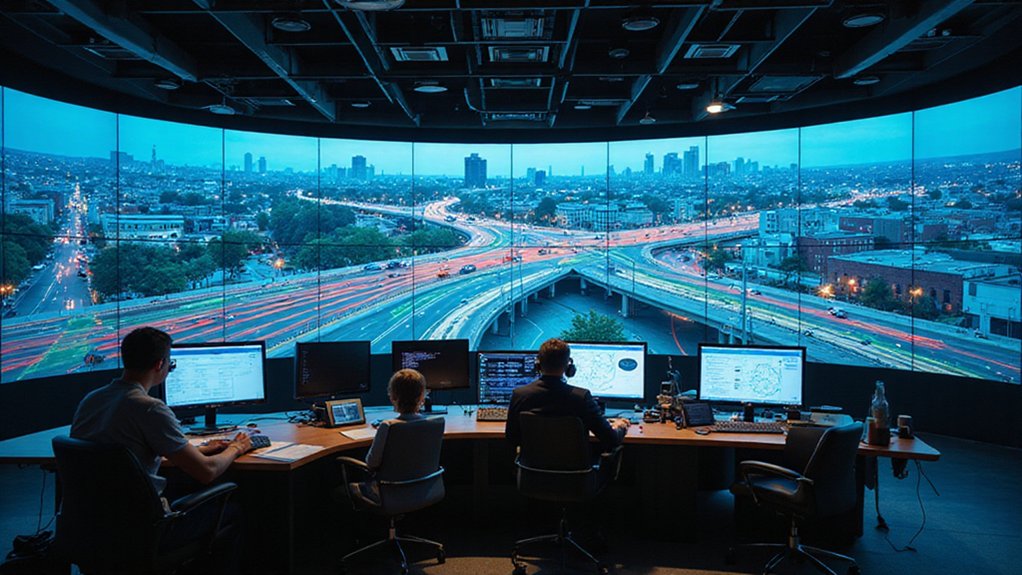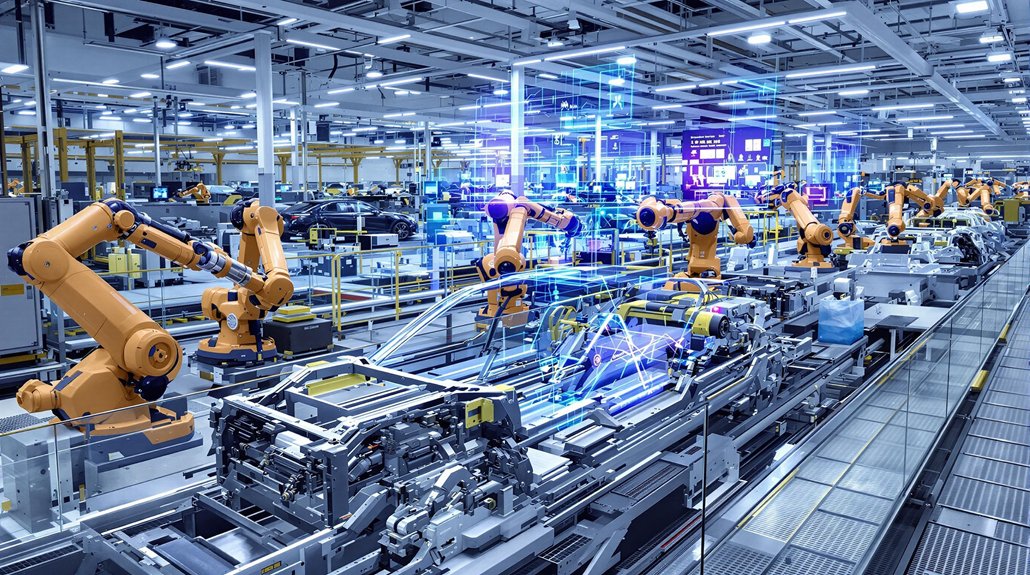Gridlock, once the unavoidable nightmare of city dwellers, is now meeting its match through artificial intelligence. Recent data shows that AI-powered traffic systems can reduce travel time by up to 25% in congested urban areas. Cities implementing adaptive traffic signal control have seen traffic delays decrease by 20%, offering significant relief to frustrated commuters.
The technology works through a network of interconnected systems. License Plate Recognition cameras capture real-time vehicle data while adaptive signal control technologies adjust traffic lights based on actual conditions rather than fixed schedules. These smart systems have cut wait times by 30-40% in cities that have adopted them.
Singapore has become a model for AI traffic management success. Its extensive Intelligent Transport System enhances signal timings and predicts congestion before it happens. Barcelona shows similar results with its adaptive signal control system that analyzes traffic data in real time.
Smart cities lead the AI traffic revolution, preventing gridlock before it forms rather than simply reacting to it.
Behind these improvements is sophisticated infrastructure. The global market for these solutions is projected to grow substantially from USD 11.9 billion in 2024 to reach USD 24.9 billion by 2032, reflecting increasing investment in smart city initiatives. High-performance computing systems and fiber connectivity between traffic lights enable real-time AI decision making. The systems process data from sensors, cameras, and GPS devices to maintain peak traffic flow. These innovations are part of the broader AI transformation expected to add $15.7 trillion to the global economy by 2030.
Safety benefits are substantial too. AI algorithms don’t just move traffic faster – they make roads safer by identifying and responding to potential accident scenarios. Overspeeding control systems enforce speed limits around high-risk areas, while predictive models warn of dangerous conditions before crashes occur. AI-based traffic prediction models can achieve 90%+ accuracy in forecasting congestion by analyzing historical patterns and weather data.
What’s most impressive is that these systems don’t simply shift problems elsewhere. Unlike traditional traffic management that might reduce congestion in one area only to create it in another, AI solutions take a holistic approach. They consider traffic patterns across entire cities, preventing dangerous risk displacement.
Government regulations now actively encourage AI implementation in traffic management, with goals to reduce urban congestion by 20% by 2025. As more cities adopt these technologies, the daily commute continues to transform from a frustrating ordeal into a smoother, safer, and more predictable experience.
References
- https://scoop.market.us/intelligent-traffic-management-system-statistics/
- https://patentpc.com/blog/smart-traffic-management-stats-congestion-reduction-ai-integration
- https://multicorewareinc.com/ai-on-the-edge-the-future-of-real-time-decentralized-traffic-control/
- https://www.vaughn.edu/blog/ai-driven-technology-takes-air-traffic-control-to-the-next-level/
- https://www.irejournals.com/formatedpaper/1705886.pdf









